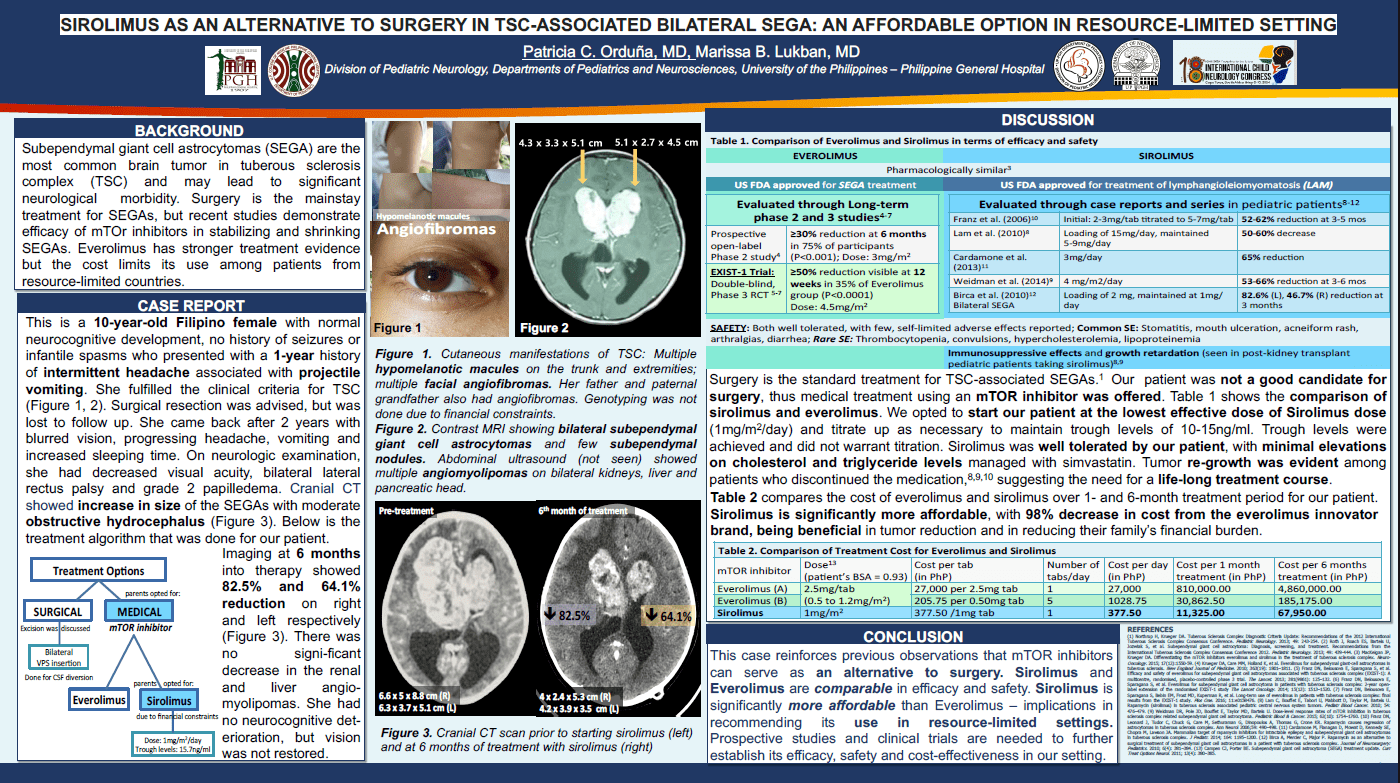Sirolimus As Alternative To Surgery In TSC-Associated Bilateral SEGAs: An Affordable Option In Resource-Limited Aetting
Subependymal giant cell astrocytomas (SEGA) may lead to significant neurological morbidity in children with tuberous sclerosis complex (TSC). Surgical resection is warranted for SEGAs demonstrating continuous growth, causing hydrocephalus and increased intracranial pressure. mTOR inhibitors (sirolimus and everolimus) are alternatives to surgery and have shown efficacy in stabilizing and shrinking SEGAs. Everolimus showed stronger evidence in efficacy, but its cost poses a limitation for this treatment among patients from low-middle income countries. We explored sirolimus as a potentially more cost-effective alternative in our setting. We present a 10-year-old Filipino child with TSC admitted due to headache, vomiting, and increased sleeping time. Neuroimaging revealed large bilateral SEGAs involving the frontal horns and foramina of Monro, causing moderate obstructive hydrocephalus. Surgical excision was offered, but parents opted for medical treatment. Bilateral posterior parietal ventriculoperitoneal shunts were inserted to decrease intracranial pressure. Due to the cost of everolimus, the patient was started on sirolimus at 1mg/m2/day. Imaging done 6 months after initiating therapy demonstrated significant decrease in size of both SEGAs (right: 82.5%, left: 64.1%). Sirolimus levels were maintained at 15.7ng/ml and minimal elevations on cholesterol and triglyceride levels were observed and treated with simvastatin. Results of this case and review of related data suggest that sirolimus can be used as a conservative approach in inducing regression of large bilateral SEGAs, and an affordable alternative to everolimus for pediatric TSC patients from low-middle income countries. Prospective studies and clinical trials are needed to further establish its efficacy, safety and cost-effectiveness in our setting.
Patricia Orduña
University of the Philippines - Philippine General Hospital
Philippines

Patricia Orduña
University of the Philippines - Philippine General Hospital
Philippines